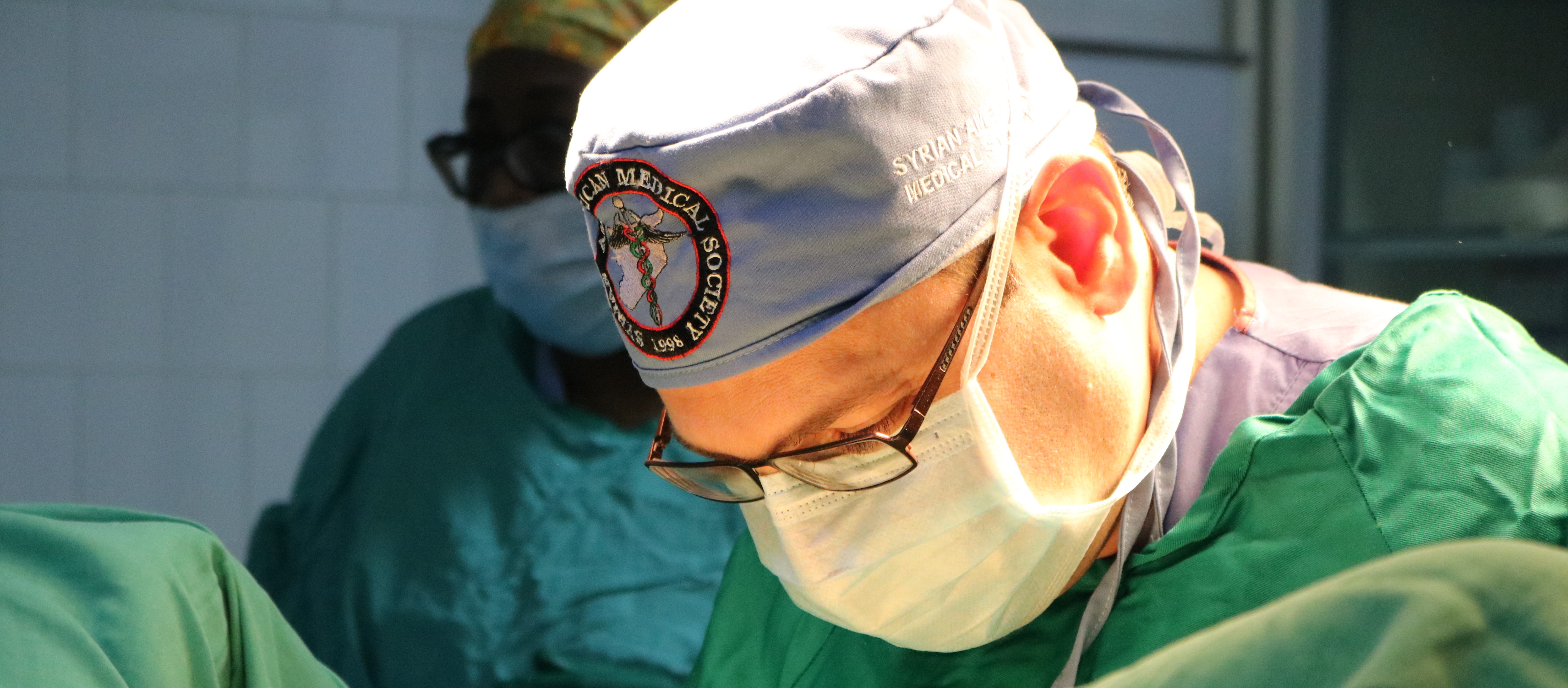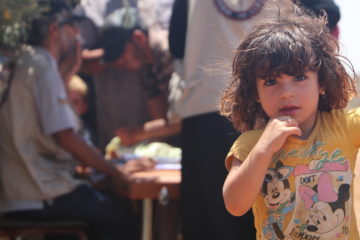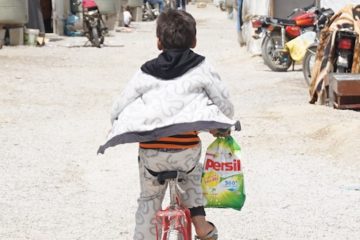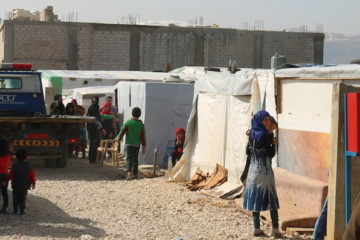March 12, 2018
Dr. Adeeb Alshahrour, a Syrian American doctor, specializing in obstetric care, recently led SAMS OBGYN mission in February 2018. This was the third such mission to Lebanon, the first being in 2016. By the end of the mission, we had provided 58 surgeries and 613 consultations, as well as other public health interventions.
In conflict and post-conflict settings, women’s health is extremely difficult to access. Syrian refugee women in Lebanon face dire living conditions, coupled with the risks of maternal mortality, and lack of reproductive care. During February, SAMS providers and translators in Lebanon tackled these challenges head-on, providing surgeries, and services to refugees living in the informal settlements of Lebanon. Volunteers, led by Dr. Alshahrour, were spread out between the informal settlements of Lebanon, and the SAMS-supported clinics of Tripoli, the Bekaa Valley and Akkar.
“Women have a right to treatment. During our mission, we work hard to make sure that women can access the treatment that they need.”
The recent mission was divided into four main categories, including the distribution of medication; nurses providing support and consultations; new equipment utilized to provide consultations to pregnant women, including ultrasounds; surgeries with follow-up from a SAMS doctor.
Dr. Alshahrour describes how each OBGYN mission includes five main phases, ranging from the recruitment of volunteers, to the implementation of the activities. “This year, more than 30 volunteers from all over the world include doctors, physicians, nurses and translators participated to provide help for vulnerable refugees, 8-10 women benefit daily from SAMS surgeries and more than 613 beneficiaries have been consulted and got medications in camps”
Dr. Alshahrour mentions the main challenges that the mission faced in Lebanon, from the limited resources to the difference between practices and conditions in the USA. “In the Operating Room room, we must make quick decisions, benefit from the available resources and from our clinical skills.”
The mission team moved easily between different clinics in Lebanon with very efficient results. Dr. Alshahrour identifies that for the upcoming years, SAMS will expand its care to Lebanese in need, saying “we are aiming to change people lives regardless of their origins.”
Dr. Alshahrour also mentioned that being a Syrian doctor or doctor from Syrian origins demands the responsibility of serving refugees whenever they are, especially women, who are often underserved.
“Women are our sisters, mothers, aunts and we should care about them, Everyone is invited to listen to women’s problems, to stop their suffering days and to improve their quality of life.”





